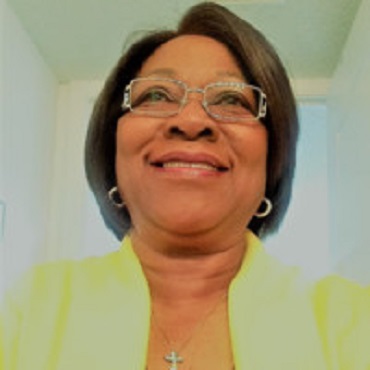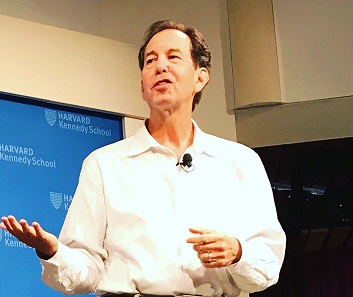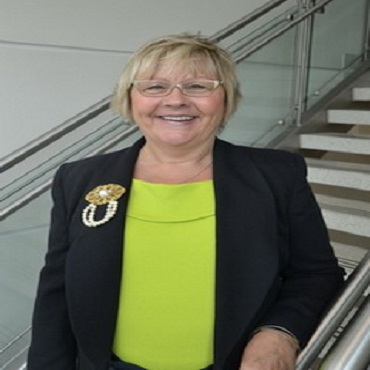Scientific Program
Keynote Session:
Title: Meaningful Education for Quality Healthcare Practice: Bringing Advanced Practice to a new level
Biography:
Patricia Seabrooks, PhD, ARNP-BC is a Dean of Nursing in Miami Regional College (School of Nursing) from March 2017 to March 2019
Abstract:
- Educating and training foreign trained physicians (FTP’s), other professional healthcare providers or therapists to become professional nurses and/or advanced practice nurses provide a successful method to populate the health professional man power shortage areas. These skilled professionals tend to learn the art and science of nursing, particularly the skills at a rapid pace. It takes longer to change attitudes and behaviors related to the theories that underpin nursing practice and the limitations on advanced practice when the new student in nursing was once the “captain” of the ship and wrote the “orders” for nurses to follow and now, realizing that nursing is its own profession and works with other health care professionals to provide the quality care that the clients need, deserve and expect. There are several programs for FTP’s in the US. It is common that the students in these nursing programs believe that they do not really need the education, just the license. However, when asked nursing questions or when testing on nursing content, they do not always perform as well as they expect. It does not take long for the motivated FTP to accept the idea of “thinking like a nurse” to experience success in the course work and on the national examinations. Faculty and managers must take into consideration that the scope of practice for professional nursing and advanced practice nursing maybe unknown to these new professionals.
- The curriculum must be designed to focus on the desired health care outcomes for the program and then work on the student level expected course outcomes, which will evoke the program level outcomes. The program must meet necessary standards for successful accreditation and maintenance by the appropriate organizations.
- This Presentation discusses the development and implementation of such a nursing program that responded to the shortage of nursing, as well as, the lack of living wages of an immigrant group of FTP’s in a large diverse metropolitan community and educates approximately 300 FTP’s yearly to become registered nurses and then to become family nurse practitioners.
- The advantages of this program are the reduction of the nurse shortage in the community, the improvement of the living conditions of the FTP’s who complete the program and the improvement of access to health care by a diverse community when the new advanced practice registered nurse accept positions in the community or create practice sites within the community.
Title: Towards an Environmental Health Infographic for Private School: A Sequential Exploratory Mixed Methods Study
Biography:
Portia Zoleta Vitug is Operations Manager at Xavier School Batch 83 Foundation and Associate Professor at St. Paul University.
Abstract:
As nurses, health comes holistically and view factors that affect health in different parameters. Environmental health refers to protection against environmental factors that may adversely impact human health. The research aims to develop and test an infographic in environmental health among students in the selected catholic school in the Philippines. The researchers conducted two focus group discussions and analyzed the discussion through thematic analysis to come up with an effective infographic. The final infographic was posted in selected institution as its strategic location for 15 days from October 8 to 24 of 2018 and tested its effectiveness by conducting a posttest to fifty-one participants of the experimental group. The experimental group was then cross matched to the control group according to age, sex, year and program. The posttest knowledge scores were then compared and tested for its significant difference using paired t-test. The result showed a significant difference between the knowledge scores of the experimental and control group having a p value of 0.026. Therefore, rejecting the null hypothesis. The created infographic was tested to be an effective material to improve knowledge.
Title: The Lived Experience of Women with Breast Cancer during the Surveillance Phase of Recovery: A Liminal Process to Healing and Recovery
Biography:
Patricia K. Amado, received her undergraduate nursing degree from DeSales University
(BSN), her master’s degree in nursing education MS(Ed), from Florida Atlantic University and her PhD from Barry University. She is currently an Assistant Professor of Clinical at the University of Miami. Areas of expertise and teaching include undergraduate and graduate courses across the curriculum as well patient and student mentorship. Her research is focused on areas of breast cancer and creating healthy transition post treatment. Dr. Amado is also recognized as a speaker in the nursing profession. She has spoken at international conferences and schools of nursing regarding her creation of liminal pathways in transitioning through chronic illness utilizing a liminal pathway to healing and wholeness. Her research formed the basis of a concept analysis framework which she is developing to advance nursing practice Her most recent project is publishing her dissertation; The Lived Experience of Women with Breast Cancer during the Surveillance Phase of Recovery: A Hermeneutic Phenomenological Inquiry. Also she has several manuscripts awaiting publication related to transition and the art of humor for healing illness and mental stress and maladies.
Abstract:
Purpose: The purpose of this presentation is premised upon my hermeneutical phenomenological study on breast cancer survivors. The method of hermeneutics enables all disciplines to understand the narrative inquiry approach to research; what it is from a therapeutic lens; what uniqueness it provides in dealing with coping and making- meaning out of a chronic illness such as breast cancer and the art of story-telling as a venue for communication and a method to facilitate healing body, mind, and spirit while battling a chronic illness.
Method: Through the use of narrative inquiry as a research method in nursing will introduce an innovative way to understand phenomena (illness) in order to understand the lived experiences of woman diagnosed with breast cancer and also those living in fear of the recurrence of the disease. It is important as healthcare professionals and laypersons realize the experience of what happens for women in the transition from health to facing a life- threatening disease. Narrative inquiry represents a better perspective on the story of illness that at times may be difficult to voice. A cognitive engagement of discourse in an open semi- structured format may give voice to the person within the context of their own journey through illness. With semi-structured interviews, the investigator will have a set of questions on an interview schedule, but the interview will be guided by the participants rather than be dictated hence the advantages of this method is as follows:
Objectives: Differentiate how the phenomenon of breast cancer and transition can be viewed from various paradigms: for education, practice, and research
Understand the phenomenon of surveillance
Provide all practitioners an innovative method to address long term survivor needs
To introduce the concept of a liminal pathway which will contribute to the development and the body of knowledge in nursing
• There is an attempt to establish rapport with the patient which allows a richer relationship to gather personal experiences of illness
• The ordering of questions is less important as in gathering information in a history and physical (less empirical approach)
• The interviewer is freer to probe interesting areas that arise.
• The interview can follow the respondent’s interests or concerns. It is a creative method of healing as someone is faced with a chronic and sometimes terminal journey.
Results /Conclusion/Findings
Quality of life is a multi- dimensional facet of one’s social, spiritual, and physical, emotional well- being. Breast cancer survivors face many fears, whether it is fear of recurrence, loss of health, and fear of dying. In order to treat each person holistically the healthcare provider needs to acknowledge alternative ways of healing for the breast cancer patient. Through introducing narrative therapy as a therapeutic way to express feelings one can make sense of this malady through the art of dialogue and may introduce new ways of learning how one builds resiliency in this specific population. It is an innovative method to help people transition to a better quality of life. A Liminal pathway through transilience, transition, and acceptance with authentic reflection on illness was discovered. This has been an important tool in moving forward in life and accepting a higher quality of being.
Title: Nurse Educators Perceptions of their Role in Retaining Nursing Students
Biography:
Dionne Gibbs is a Nurse Educator and a Life and Leadership coach with over 20 years of experience as a nurse, educating, coaching, supporting and developing individuals into the leaders of tomorrow. She is a skilled practitioner in the cutting-edge field of adult education, career development, curriculum design, and teaching a diverse group of learners. Her background includes working in higher education leadership as a dean and regional dean of nursing; with expertise in change and conflict management, coaching, effective communication, and talent development for the next generation of leaders and educators. Dr. Gibbs is Certified Nurse Educator who earned her Doctoral Degree in Education with a specialization in Higher Education and Leadership from Capella University, a Master’s of Science degree in Nursing with a specialization in Nursing Education from Walden University, a Bachelor’s Degree in Nursing from Virginia Commonwealth University, and her Registered Nursing Degree from Norfolk State University.
Abstract:
Statement if the Problem
Nurses are often thrilled to assume the role of a nurse faculty member. However, many nurse faculty who work in proprietary schools are often unaware of the role they will play in student retention. Past studies identified faculty behaviors that nursing students experienced as supportive, but gaps in the literature exist regarding faculty’s perceptions of their role in retaining nursing students. Trolian, Jach, and Hanson (2016) explained that further research is necessary to identify the various functions of nursing faculty members. This research study addressed the gaps by asking nursing faculty to explore their roles as nurse educators and discuss their perspectives of how their positions require them to influence student retention and academic success.
Purpose
The purpose of this basic qualitative research was to investigate the perceptions of nurse educators who work in proprietary institutions regarding their roles in retaining nursing students enrolled in an associate degree in nursing program. Information about nursing faculty’s perceptions of their role in nursing students’ retention was missing from the literature. The sample consisted of 10 nursing educators who taught in associate degree nursing programs at proprietary institutions. The nurse educators participated in semistructured interviews and answered open-ended questions about their experience and perceptions regarding retention of nursing students.
Analysis and Finding
Data analysis revealed four overarching themes. First, educators described the importance of developing relationship with students and spending time with their students outside of the classroom. The second theme was the need to seek resources to assist with student retention. The third theme involved seeking strategies to assist with academic performance. In the final theme, faculty revealed the need for faculty training regarding student retention. The interviewees discussed that they had primarily developed what they believed were practical techniques for working with students based on their own experiences. The findings particularly highlighted the need for formal faculty training and resources to support educators in their roles in improving student retention rates.
Oral Session 1:
- Nursing Research, Evidence Based Nursing: A Guide to Clinical practice, Non-clinical influence on clinical decision-making: A major challenge to evidence based practice, Cancer nursing, Midwifery Nursing





